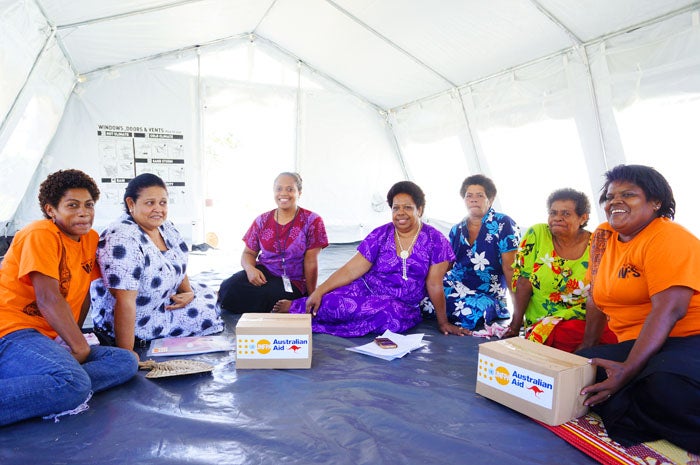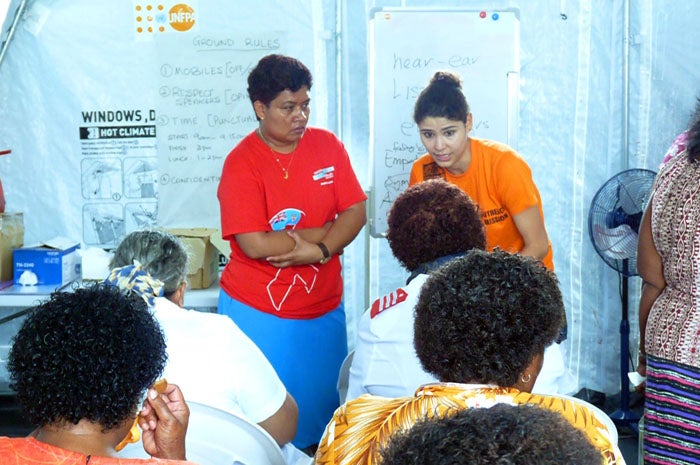UNFPA Pacific, Suva, Fiji (March 19, 2016) - Communities in the areas worst hit by Tropical Cyclone Winston, particularly women and girls, will now benefit from services to be provided from women friendly spaces established in eight locations that indicate maximum reach.
Considerate of local dynamics, one of the main humanitarian responses provided by the UNFPA globally is the establishment of women friendly spaces, WFS, working with local partners.

In Fiji, the exercise is led by the Ministry of Women, Children and Poverty Alleviation as chair of the Gender-Based Violence Sub-Cluster group activated for post-Cyclone Winston response in partnership with sub-cluster members.
Women and girls are intended primary beneficiaries. Women friendly spaces are designed to provide an environment where women and girls can feel comfortable and enjoy the freedom to express themselves without fear or judgement or harm.
The women friendly spaces will also ensure access to awareness raising and sensitization sessions in affected communities, psychosocial support, multi-sectoral referrals and related services for survivors of GBV.
Non-government organizations, Fiji Women's Crisis Center (FWCC) and Empower Pacific (EP) will lead the management and immediate supervision of the facilities on a weekly basis.
"Women and girls may be the primary targets for the services that will be provided from the women friendly spaces but the whole community stands to benefit from the positive impact the services will have," Dr Laurent Zessler, UNFPA Pacific Director and Representative said.
Locally-based women identified to be community WFS facilitators undergo a three-day orientation on relevant topics related to gender-based violence and gender equality, in addition to a briefing on referral mechanisms and their roles and functions. They will be actively engaged in the rehabilitation efforts of their communities, developing capacity and building resilience in the vent of the next emergency.
In collaboration with the Ministry of Health and Medical Services, the UNFPA engaged eight midwives to guide the WFS facilitators; this is apart from the 33 retired midwives and nurses engaged for deployment for three months to relieve health workers in the most-affected areas.
UNFPA provided eight WFS tents (including generators, stand fans, white boards, tables, chairs and stationary supplies) which are located in Ra (2), Ba (3), Tailevu (1), Cakaudrove (1) and Lomaiviti (1).
Launching the women friendly spaces April 16, Ministry of Women, Children and Poverty Alleviation Minister Rosy Akbar paid tribute to the role women played as first responders at times post-disasters.
"Never think you have a minor role to play," Ms Akbar said. "We have a very important role in rebuilding families and communities especially during this crucial time when we are all moving together to rebuild homes. That is why we are putting you at the centre of these things by having such places like the WFS."
The post-Cyclone Winston response by UNFPA has been supported by the UNFPA global Emergency Response Fund (UNFPA ERF) and the United Nations Emergency Response Fund (UN CERF); the Government of Australia has been a key donor partner in the areas of reproductive health and gender-based violence emergency response efforts.


